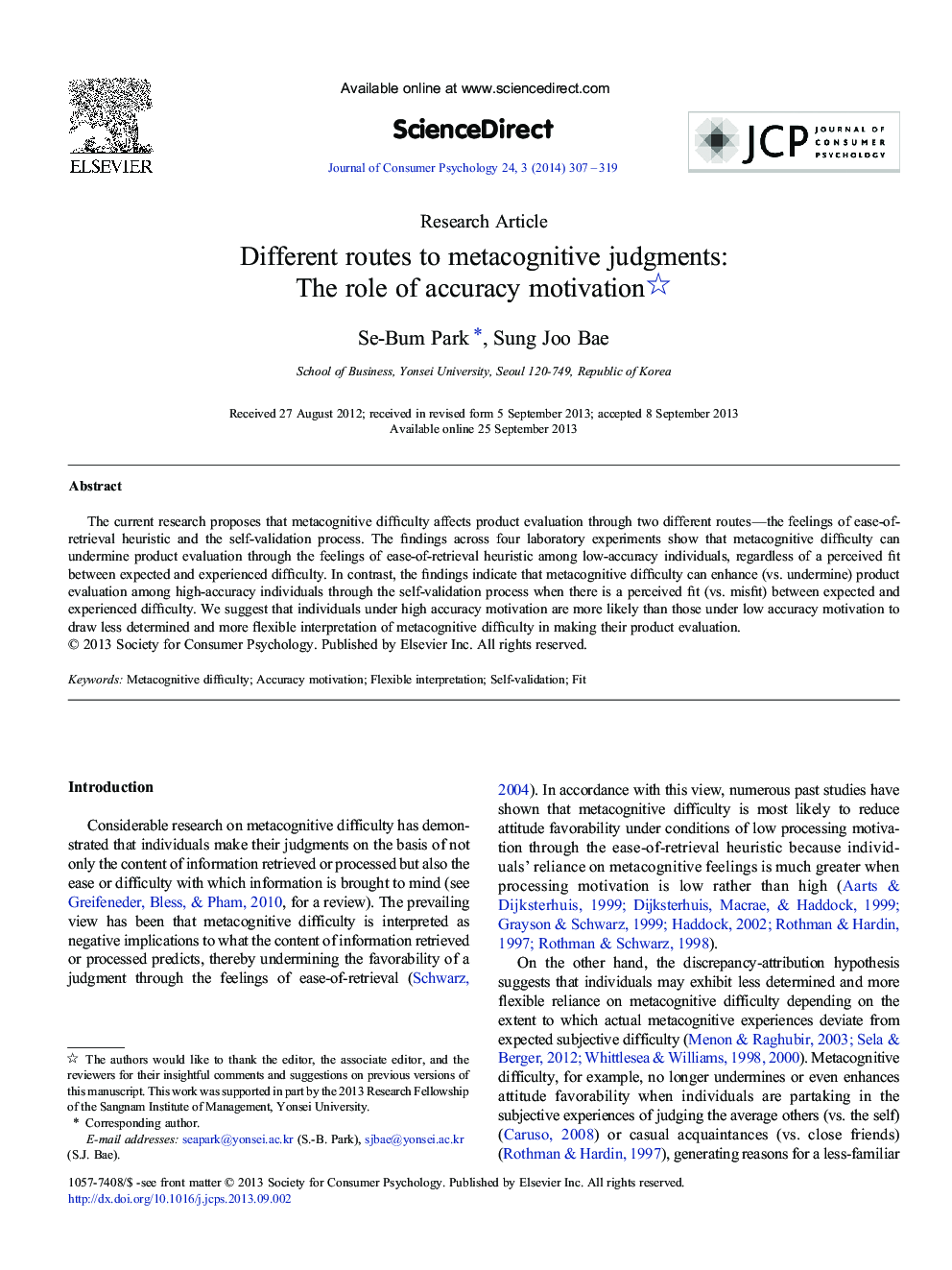| Article ID | Journal | Published Year | Pages | File Type |
|---|---|---|---|---|
| 882242 | Journal of Consumer Psychology | 2014 | 13 Pages |
Abstract
The current research proposes that metacognitive difficulty affects product evaluation through two different routes—the feelings of ease-of-retrieval heuristic and the self-validation process. The findings across four laboratory experiments show that metacognitive difficulty can undermine product evaluation through the feelings of ease-of-retrieval heuristic among low-accuracy individuals, regardless of a perceived fit between expected and experienced difficulty. In contrast, the findings indicate that metacognitive difficulty can enhance (vs. undermine) product evaluation among high-accuracy individuals through the self-validation process when there is a perceived fit (vs. misfit) between expected and experienced difficulty. We suggest that individuals under high accuracy motivation are more likely than those under low accuracy motivation to draw less determined and more flexible interpretation of metacognitive difficulty in making their product evaluation.
Keywords
Related Topics
Social Sciences and Humanities
Business, Management and Accounting
Marketing
Authors
Se-Bum Park, Sung Joo Bae,
